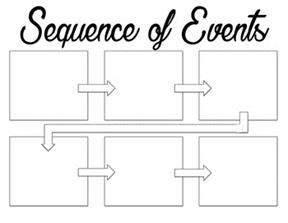 |
Student Self-Assessment Checklist Student
|
|
|
|
Student Self-Assessment Checklist Student
Name: ________________________
Date: ______________________ Think about how well you are working in your group.
Place a check mark beside the skills you demonstrate in your role.
I listen attentively to others.
I express my thinking clearly and concisely.
I take turns. I encourage participation of all group members.
I show respect for alternative points of view.
I disagree agreeably.
I synthesize information from others.
I analyze ideas of others.
I remember significant information.
I identify issues. I make connections to prior knowledge and experiences.
Appendix1
Teacher observation checklist
Student's name ________________________________________
Positive Aspects
ü Completed the individual role-card.
ü Used extracts from the text to support his/her ideas.
ü Asked open-ended questions.
ü Listened while others talked.
ü Encouraged peers to share their ideas.
ü Added his/her own comments and ideas to other student's comments and ideas.
Negative Aspects
ü Didn't complete the individual role-card.
ü Didn't appear to be listening or interrupted when others were speaking.
ü Did not use text to support his/her opinions.
Do you know any proverbs about travelling?
" The world is a book and those who do not travel read only a page. ”
" The more you travel the more you see, the more you see the more you know. "
" You travel East, you travel West, but remember your Home is best". )
Short term lesson plan
| Unit of a long term plan Unit 8 Travel and tourism Lesson plan 81 | School: | ||||||||
| Date: | Teacher’s name: | ||||||||
| Class: 9 | Number present: | Number absent: | |||||||
|
Lesson title | Language Focus: Will / to be going to. p. 95 | ||||||||
|
Learning objectives(s) that this lesson is contributing to | 9. C5 use feedback to set personal learning objectives 9. C7 develop and sustain a consistent argument when speaking or writing 9. L 6 deduce meaning from context in unsupported extended talk on a wide range of general and curricular topics, including talk on a limited range of unfamiliar topics 9. S4 respond with flexibility at both sentence and discourse level to unexpected comments on a range of general and curricular topics 9. S7 use appropriate subject-specific vocabulary and syntax to talk about a range of general and curricular topics 9. S8 recount extended stories and events on a wide range of general and curricular topics 9. R7 recognise typical features at word, sentence and text level in a wide range of written genres, including some which focus on unfamiliar topics 9. W3 write with grammatical accuracy on a range of familiar general and curricular topics
| ||||||||
|
Lesson objectives | All learners will be able to: · *develop speaking skills through communication about holidays; · *improve reading skills through recognising typical features at word; · *write the plan of future activities. · Most learners will be able to: · * Select, compile, and synthesize information from the reading passage for an oral presentation. Some learners will be able to: *Respond to and discuss the reading passage using interpretive, evaluative and creative thinking skills. *Respond to and discuss the reading passage using interpretive, evaluative and creative thinking skills. · *Apply topic related vocabulary in speech with grammar accuracies. | ||||||||
|
Value links | Cooperation, respect each other's opinion, functional literacy, love to people and a Motherland. | ||||||||
|
Crosscurricular links | Social Science, Psychology, Geography, Information Technology, History. | ||||||||
|
Previous learning | Talking about the tips for travelling. | ||||||||
|
Useof ICT | Smart board for showing a presentation, getting additional information, playing the audio files. | ||||||||
|
Intercultural awareness | Discuss experiences in different countries. | ||||||||
|
Health and Safety | Breaks and physical activities used. Everyday classroom precautions will ensure that safety measures are provided to prevent the exposure of electrical power cords. | ||||||||
| Planned timings |
Planned activities |
Resources | |||||||
| Beginning of the lesson 6 min. | The lesson greeting. The teacher sets the lesson objectives, letting students know what to anticipate from the lesson. Then to create a positive learning environment the teachers asks students to start the lesson giving each other compliments about appearance, job performance, talent, etc. and also practice accepting compliments. Watching the pictures, the learners are asked to predict thetopic of the lesson.
To be going to/ will Warm up. Free talk about a difference between to be going to and will. The Sts. need to find out if there is a plan or intention or unexpected decision. Why shouldn’t you play your mp3 player? – You will annoy travel companions. It is raining. You are going to get wet. |
Slide (useful phrases). Pictures PPT
Student Book p. 95
Pictures PPT
Slide (useful phrases).
| |||||||
| Main Activities 15 min. 13 min |
Main part Complete the sentences. Ex. 1 p. 95. The Rule about will/ to be going to. (Pair work). Ex. 2- 3 p. 95. Do these exercises in pairs. Students study a short a dialogue and answer some questions. After this, students give answers to a number of questions which elicit either 'will' or 'going to'. Finally, students get together for some small talk to practice. Dialogue Exercise 1: The Party Martha: What horrible weather today. I'd love to go out, but I think it will just continue raining.
Martha: I hope you're right. Listen, I'm going to have a party this Saturday. Would you like to come? Martha: Well, a number of people haven't told me yet. But, Peter and Mark are going to help out with the cooking! Martha: Would you? That would be great! Martha: That sounds delicious! I know my Italian cousins are going to be there. I'm sure they'll love it. Martha: No, no. They're not like that. They'll love it. Martha: No, I don't think so. Just a chance to get together and have fun. Martha: But I'm going to hire a clown! Martha: No, no. As I child, I always wanted a clown. Now, I'm going to have a clown at my own party. Martha: That's the plan! Follow-Up Questions: · What do they think about the weather? · What does Martha have to share? · What are Peter and Mark going to do? · What does Jane offer to do? · How does Jane react to the news about the Italian cousins? · What special plan is there? · Why does Martha want a clown? · Does Martha know exactly how many people are going to come? If yes, how many. If not, why not? · How does Jane think people will react to the clown? · Is there a theme for the party? LEXICAL TASK: think about an ideal place to live and make up sentences using will / to be going to. Ex. 5: In my ideal place we are not going to have factories. We’ll make our life interesting. DESCRIPTION OF THE IDEAL PLACE. Use active words and phrases. Make posters in groups of 3. |
Student Book p. 95
Writing Worksheet
Pictures PPT
Writing Worksheet
| |||||||
| Ending the lesson 6 min. |
Giving the home task. W. B. p. 63 Students express their attitude to the lesson and give self-assessment using the method: “ Six thinking hats ”: · Green: How can you use today's learning in different subjects? · Red: How do you feel about your work today? · White: What have you leant today? · Black: What were the weaknesses of your work? · Blue: How much progress have you made in this lesson? (Now I can, I still need to work on, I've improved in, Today I learnt... ) Yellow: What did you like about today's lesson? Slide (Homework) Slide " Six thinking hats" | ||||||||
| Differentiation – how do you plan to give more support? How do you plan to challenge the more able learners? | Assessment – how are you planning to check learners’learning? | Critical thinking | |||||||
| Differentiation can be achieved through the selection of activities, identification of learning outcomes for a certain student, provision of individual support to learners, selection of learning materials and resources based on the individual abilities of learners. | Assessment criteria: Identify the main idea in extended talks with little support. Apply topic related vocabulary in speech appropriately arranging words and phrases into well-formed sentences. Demonstrate the ability to participate in a conversation. Descriptor: A learner: · selects an appropriate answer. · completes the task. · uses appropriate subject-specific vocabulary while speaking. · discusses questions and answers the questions within the group. · Observation · Feedback on the work · Peer-assessment | Students think critically, exploring, developing, evaluating and making choices about their own and others’ ideas | |||||||
|
|
|
Teaching the future in English is relatively simple in the beginning. Students understand the future with 'will' and learn the form quickly. However, the problems begin when discussing the future with 'going to'. The key issue is that the future with 'going to' is logically a better fit when speaking about the future. The future with 'going to' tells us about our plans, whereas the future with 'will' is mainly used to discuss reactions that occur at the moment of speaking and speculation about the future. Of course, there are other uses, but this main issue leads to a lot of confusion among students.
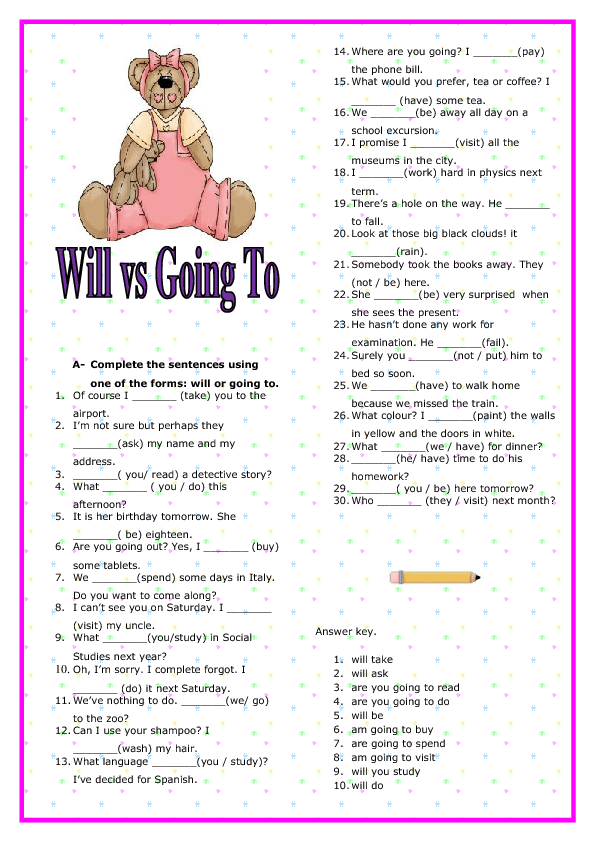
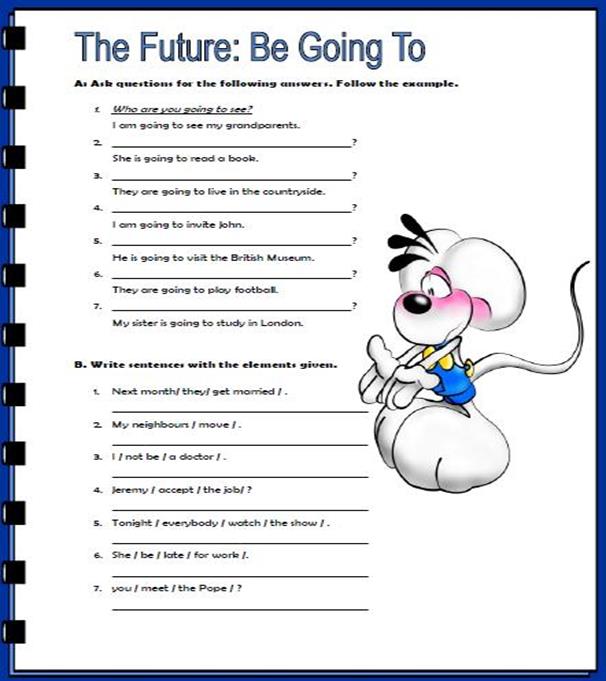
Short term lesson plan
| Unit of a long term plan Unit 8 Travel and tourism Lesson plan 82 | School: | ||||||||
| Date: | Teacher’s name: | ||||||||
| Class: 9 | Number present: | Number absent: | |||||||
|
Lesson title |
Travel: verbs | ||||||||
|
Learning objectives(s) that this lesson is contributing to | 9. C1 use speaking and listening skills to solve problems creatively and cooperatively in groups 9. C6 organise and present information clearly to others 9. L1 understand the main points in unsupported extended talk on a wide range of general and curricular topics, including talk on a limited range of unfamiliar topics 9. S3 explain and justify their own and others’ point of view on a range of general and curricular topics 9. W3 write with support factual descriptions at text level which describe people, places and objects 9. UE3 use a growing variety of adjectives and regular and irregular comparative and superlative adjectives on a limited range of familiar general and curricular topics | ||||||||
|
Lesson objectives | All learners will be able to: · Identify the theme, study a model report, facts in the reading passage and use them as the basis for discussion. · Transfer information from the reading passage into a graphic organizer(mind - map). · Offer constructive peer-feedback using rubric. Most learners will be able to: ·Select, compile, and synthesize information from the reading passage for an oral presentation. Some learners will be able to: *Respond to and discuss the reading passageusing interpretive, evaluative and creative thinking skills and compare facts with Kazakhstan. · *Demonstrate the ability to find correct information without any mistakes; *Apply topic related vocabulary in speech with grammar accuracies. | ||||||||
|
Value links | Cooperation, respect each other's opinion, functional literacy, love to Motherland. | ||||||||
|
Crosscurricular links | Social Science, Psychology, Geography, Information Technology, Geography, Astronomy. | ||||||||
|
Previous learning | Talking about future plans and intentions. | ||||||||
|
Useof ICT | Smart board for showing a presentation, getting additional information, playing the audio files. | ||||||||
|
Intercultural awareness | Discuss places to travel in different countries. | ||||||||
|
Health and Safety | Breaks and physical activities used. Everyday classroom precautions will ensure that safety measures are provided to prevent the exposure of electrical power cords. | ||||||||
| Planned timings |
Planned activities |
Resources | |||||||
| Beginning of the lesson 8 min. |
1. Leading-in stage (W) Teacher greets students and asks question: How are you today?
2. Interactive Starter (W) Teacher shows the pictures of the spaceships and students should guess the topic of the lesson.
MOON - Planet 3. Teacher tells the students the objectives of the lesson - Ask and answer personal questions with some support - Use some topic vocabulary to create 5-6 sentences - Explain the importance of going to other planets and to the Moon. Warm-up “A Five Minute Activity” (I). Free talk about the planet we live and travelling to the planets... Give only adjectives and its synonyms and opposites. fashionable historical high low old modern busy noisy quiet peaceful crowded deserted wide narrow polluted clean dirty fancy shabby safe unsafe scary dangerous industrial interesting uninteresting cosmopolitan tasty delicious special cheap expensive lively sunny cloudy romantic populous impressive dynamic amazing awesome hectic outstanding bustling spicy exotic cold pleasant unpleasant luxurious derelict traditional friendly unfriendly growing rude arrogant dry busy old-fashioned heavy typical tolerant easy-going stressful rainy unusual
|
Slide (useful phrases). Pictures PPT
Board, lesson objectives PowerPoint Presentation (see the attached file)
Slide (useful phrases).
Writing Worksheet
Video file
| |||||||
| Main Main Activities 14 min. 12 min |
Main part LEXICAL TASK: Ex. 1 p. 96. Answers: 1. fasten; 2. Set off; 3. Stop off; 4. Board; 5. turn back; 6. Come across; 7. Book; 8. Check in. Listening and Reading tasks: Task 1(W) Listening and Speaking tasks. Task 2. Listen to another announcement” The tourist special to Jupiter” and compare with the first one. The Sts. listen and answer the questions. Ex. 3 - 4 p. 96.
Task2 (G) After these exercises, students brainstorm what sightsthey can see on the Moon. Students must use appropriate adjectives writing the announcement for a sightseeing trip to the moon. Each group writes their ideas on the board, the group with the most ideas wins. Activate: Ex. 5 p. 96.
|
Student Book p. 96
CD. 3. 13
CD. 3. 14
Teacher's Book p. 118
Pictures PPT
Student Book p. 96
| |||||||
| Ending the lesson 6 min. |
Giving the home task. W. B. p. 64 Students express their attitude to the lesson and give self-assessment using the method: “ Six thinking hats ”: · Green: How can you use today's learning in different subjects? · Red: How do you feel about your work today? · White: What have you leant today? · Black: What were the weaknesses of your work? · Blue: How much progress have you made in this lesson? (Now I can, I still need to work on, I've improved in, Today I learnt... ) Yellow: What did you like about today's lesson? Slide (Homework) Slide " Six thinking hats" | ||||||||
| Differentiation – how do you plan to give more support? How do you plan to challenge the more able learners? | Assessment – how are you planning to check learners’learning? | Critical thinking | |||||||
| Differentiation can be achieved through the selection of activities, identification of learning outcomes for a certain student, provision of individual support to learners, selection of learning materials and resources based on the individual abilities of learners. | Assessment criteria: Identify the main idea in extended talks with little support. Apply topic related vocabulary in speech appropriately arranging words and phrases into well-formed sentences. Demonstrate the ability to participate in a conversation. Descriptor: A learner: · selects an appropriate answer. · completes the task. · uses appropriate subject-specific vocabulary while speaking. · discusses questions and answers the questions within the group. · Observation · Feedback on the work · Peer-assessment | Students think critically, exploring, developing, evaluating and making choices about their own and others’ ideas | |||||||
Short term lesson plan
|
|
|
| Unit of a long term plan Unit 8Travel and tourism Lesson plan 83 | School: | ||||||
| Date: | Teacher’s name: | ||||||
| Class: 9 | Number present: | Number absent: | |||||
|
Lesson title |
Present Simple and Continuous for future | ||||||
|
Learning objectives(s) that this lesson is contributing to | 9. C1 use speaking and listening skills to solve problems creatively and cooperatively in groups 9. C2 use speaking and listening skills to provide sensitive feedback to peers 9. S7 use appropriate subject-specific vocabulary and syntax to talk about a limited range of general topics general and curricular topics 9. W2 write with support a sequence of short sentences in a paragraph on a limited range of familiar general topics 9. W3 write with support factual descriptions at text level which describe people, places and objects 9. UE3 use a growing variety of adjectives and regular and irregular comparative and superlative adjectives on a limited range of familiar general and curricular topics | ||||||
|
Lesson objectives | All learners will be able to: · understand the main idea of travel arrangements; · practise speaking skills through communication and getting information about the future arrangements; improve writing skills through spelling some of the words accurately. · Most learners will be able to: · * Select, compile, and synthesize information from the reading passage for an oral presentation. Some learners will be able to: *Respond to and discuss the reading passage using interpretive, evaluative and creative thinking skills. · *Demonstrate the ability to find correct information without any mistakes; · *Apply topic related vocabulary in speech with grammar accuracies. | ||||||
|
Value links | Cooperation, respect each other's opinion, functional literacy, love to the native places and wish to find out new places in the world and outer space. | ||||||
|
Crosscurricular links | Social Science, Psychology, Geography, Information Technology, History, Astronomy, Physics. | ||||||
|
Previous learning | Talking about travelling to other planets. | ||||||
|
Useof ICT | Smart board for showing a presentation, getting additional information, playing the audio files. | ||||||
|
Intercultural awareness | Discuss the exploration of space. | ||||||
|
Health and Safety | Breaks and physical activities used. Everyday classroom precautions will ensure that safety measures are provided to prevent the exposure of electrical power cords. | ||||||
| Planned timings |
Planned activities |
Resources | |||||
| Beginning of the lesson 7 min. |
The lesson greeting. The teacher sets the lesson objectives, letting students know what to anticipate from the lesson. Then to create a positive learning environment the teachers asks students to start the lesson giving each other compliments about appearance, job performance, talent, etc. and also practice accepting compliments. Watching the pictures, the learners are asked to predict the topic of the lesson.
Warm up. How can people travel and what will be people’s destination in 50 years? |
Slide (useful phrases). Pictures PPT
Student Book p. 97
| |||||
| Main Activities 15 min. 12 min |
Main part Listen to the recording on travel arrangements and read along with the conversation. Review the key vocabulary and underline sentences with future meaning. Choose the right answers. What is the man's destination? 1. a) Salt Lake City, USA b) Helsinki, Finland c) New York City 2. When is the man's departure date? a) the twenty-second b) the twenty-fourth c) the twenty-third 3. What is the flight number for the second party of his trip? a) 1070 b) 555 c) 90 4. How long is the man's layover between flights? a) less than an hour b) less than two hours c) less than three hours 4. The man asks for ________. a) early check in b) an aisle seat c) a special meal The Consolidation of Grammar: Present Simple and continuous for future. In groups, make a cluster of this rule and give the examples of using future actions. Ex. 1. p. 97. Say some words about this rule: Do Kazakh and Russian languages have the rule of expressing future action? Task 2 (I) Students complete the sentences using a rule listening the dialogue. Ex. 2 – 3. Feedback: Students express their opinions about the arrangements beforehand. Ex. 2 p. 97. Differentiation Allow less confident learners to give different levels of response (differentiation by outcome)or Some learners ask and answer a fewer number of questions (differentiation by task). Task 3 (W). Complete the dialogues and make your own about planning a weekend trip to a city. Ex. 4 - 5 p. 97. Creative Exercises: Ex. 6 p. 97. |
Writing Worksheet Travel Arrangements | Randall's ESL Cyber Listening Lab https: //www. esl-lab. com/difficult/travel-arrangements/
1.
Pictures PPT
Student Book p. 97
CD. 3. 15. CD. 3. 16.
| |||||
| Ending the lesson 6 min. |
Giving the home task. W. B. p. 65. Students express their attitude to the lesson and give self-assessment using the method: “ Six thinking hats ”: · Green: How can you use today's learning in different subjects? · Red: How do you feel about your work today? · White: What have you leant today? · Black: What were the weaknesses of your work? · Blue: How much progress have you made in this lesson? (Now I can, I still need to work on, I've improved in, Today I learnt... ) Yellow: What did you like about today's lesson? Slide (Homework) Slide " Six thinking hats" | ||||||
| Differentiation – how do you plan to give more support? How do you plan to challenge the more able learners? | Assessment – how are you planning to check learners’learning? | Critical thinking | |||||
| Differentiation can be achieved through the selection of activities, identification of learning outcomes for a certain student, provision of individual support to learners, selection of learning materials and resources based on the individual abilities of learners. | Assessment criteria: Identify the main idea in extended talks with little support. Apply topic related vocabulary in speech appropriately arranging words and phrases into well-formed sentences. Demonstrate the ability to participate in a conversation. Descriptor: A learner: · selects an appropriate answer. · completes the task. · uses appropriate subject-specific vocabulary while speaking. · discusses questions and answers the questions within the group. · Observation · Feedback on the work · Peer-assessment | Students think critically, exploring, developing, evaluating and making choices about their own and others’ ideas. | |||||
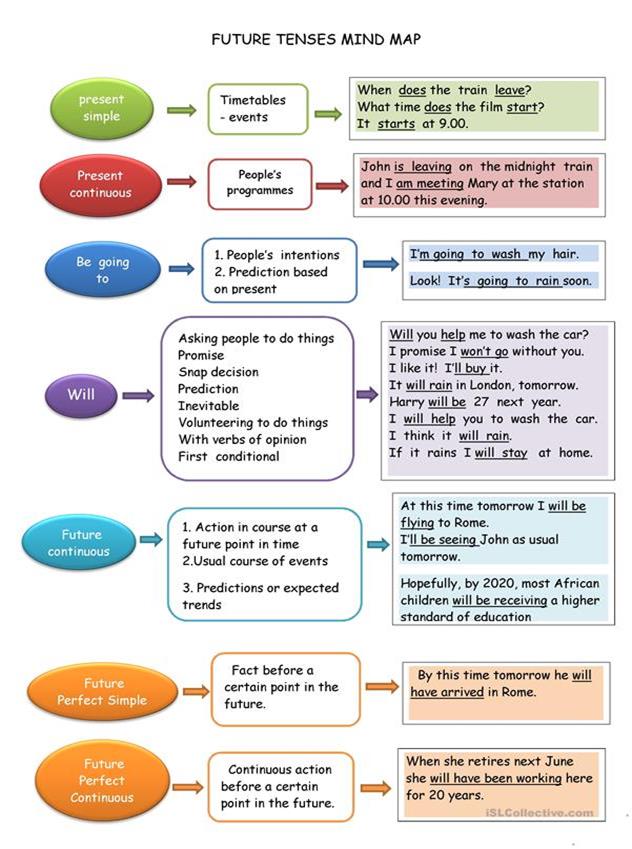
“TRAVEL ARRANGEMENTS” (Listening). TRAVEL ARRANGEME
Travel Agent: Freedom Travel. How may I help you?
Caller: Yes, I'd like to make a flight reservation for the twenty-third of this month.
Travel Agent: Okay. What is your destination?
Caller: Well. I'm flying to Helsinki, Finland.
Travel Agent: Okay. Let me check what flights are available? [Okay] And when will you be returning?
Caller: Uh, well, I'd like to catch a return flight on the twenty-ninth. Oh, and I'd like the cheapest flight available.
Travel Agent: Okay. Let me see. Um, hmm. . .
Caller: Yeah?
Travel Agent: Well, the price for the flight is almost double the price you would pay if you leave the day before.
Caller: Whoo. Let's go with the cheaper flight. By the way, how much is it?
Travel Agent: It's only $980.
Caller: Alright. Well, let's go with that.
Travel Agent: Okay. That's flight 1070 from Salt Lake City to New York, Kennedy Airport, transferring to flight 90 from Kennedy to Helsinki.
Caller: And what are the departure and arrival times for each of those flights?
Travel Agent: It leaves Salt Lake City at 10: 00 AM, arriving in New York at 4: 35 PM, then transferring to flight 90 at 5: 55 PM, and arriving in Helsinki at 8: 30 AM the next day.
Caller: Alright. And, uh, I'd like to request a vegetarian meal.
Travel Agent: Sure, no problem. And could I have you name please?
Vocabulary:
· destination (noun): the place a trip ends
- We'll reach our destination by 3: 00 PM.
· available (adjective): not busy, ready for use
Are there any seats available on the next train?
· catch (verb): get
- You can catch a taxi outside of the hotel lobby.
· go with (phrasal verb): choose something
- I think I'll go with the budget tour to Hawaii on this trip.
· transfer (verb): change to a different transportation line
- You'll need to transfer to a city bus when you arrive at the train station.
· departure (noun): the act of leaving
- Passengers should check in two hours before their departure time.
· vegetarian (noun): one who eats little or no meat, fish, or animal products
- Although Charles considers himself a vegetarian, he sometimes eats chicken.
Short term lesson plan
| Unit of a long term plan Unit 8Travel and tourism Lesson plan 84 | School: | ||||||
| Date: | Teacher’s name: | ||||||
| Class: 9 | Number present: | Number absent: | |||||
|
Lesson title | Asking for and giving information. | ||||||
|
Learning objectives(s) that this lesson is contributing to | 9. S2 ask complex questions to get information about a wide range of general and curricular topics 9. S3 explain and justify their own and others’ point of view on a range of general and curricular topics 9. S4 respond with flexibility at both sentence and discourse level to unexpected comments on a range of general and curricular topics 9. S7 use appropriate subject-specific vocabulary and syntax to talk about a range of general and curricular topics 9. L 6 deduce meaning from context in unsupported extended talk on a wide range of general and curricular topics, including talk on a limited range of unfamiliar topics 9. R6 recognise the attitude or opinion of the writer in extended texts on a wide range of familiar general and curricular topics | ||||||
|
Lesson objectives | All learners will be able to: · *develop speaking skills through communication about a travel information; · *improve reading skills through recognising typical features at word · *write descriptions given facts about travelling. · Most learners will be able to: · * Select, compile, and synthesize information from the reading passage for an oral presentation. Some learners will be able to: *Respond to and discuss the reading passage using interpretive, evaluative and creative thinking skills. · *Demonstrate the ability to find correct information without any mistakes; · *Apply topic related vocabulary in speech with grammar accuracies. | ||||||
|
Value links | Love to people and travelling, Cooperation, respect each other's opinion, functional literacy. | ||||||
|
Crosscurricular links | Social Science, Psychology, Geography, Information Technology, History, P. E. | ||||||
|
Previous learning | Talking about travel information. | ||||||
|
Useof ICT | Smart board for showing a presentation, getting additional information, playing the audio files. | ||||||
|
Intercultural awareness | Discuss experiences of travelling in different countries. | ||||||
|
Health and Safety | Breaks and physical activities used. Everyday classroom precautions will ensure that safety measures are provided to prevent the exposure of electrical power cords. | ||||||
| Planned timings |
Planned activities |
Resources | |||||
| Beginning of the lesson 7 min. | The lesson greeting. The teacher sets the lesson objectives, letting students know what to anticipate from the lesson. Then to create a positive learning environment the teachers asks students to start the lesson giving each other compliments about appearance, job performance, talent, etc. and also practice accepting compliments. Watching the pictures, the learners are asked to predict the topic of the lesson.
Warm up. People like travelling. But how can they find out the information about the places to visit? What do people usually do? Did you travel a long way? |
Slide (useful phrases). Pictures PPT
Student Book p. 98 Writing Worksheet
http: //bit. ly/kidsonlinechannelsubscribe
| |||||
| Main Activities 15 min. 12 min |
Main part Look at the photo and guess: where are the people? Ex. 1 p. 98. What is Mary asking? Answers: They are at the tourist office and she is asking some information. Listen to the dialogue and do ex. 2. Answers: 8 pounds. Differentiation: Development of Vocabulary(I/P/G) Task 1(I) Students complete the dialogue with key phrases: Ex. 3 p. 98. Read them and put by memory into the dialogue. In a weaker group: find the phrases in the dialogue and complete them before listening. Grammar: will for spontaneous decisions Decision Dominoes In this engaging decisions and offers activity, students play a game of dominoes to practice spontaneous decisions and offers. In the activity, students match statements and questions to spontaneous decisions and offers with ‘will’ and vice-versa. The students are divided into groups of three and each group is given a set of dominoes. The students shuffle the dominoes and deal out six each, leaving the rest in a pile, face down. The students then turn over the top card from the pile and place it face up on the table. The first player puts a domino down either before or after the domino on the table, making sure the statement or question matches with an appropriate decision or offer. Play then passes to the next student and so on. If a player cannot put down one of their dominoes, they take a domino from the top of the pile and put it down if they can. If there are no dominoes left in the pile, play passes to the next student. The first player to get rid of all their dominoes wins the game. Offers and Promises In this making offers and promises activity, students respond to statements by making offers with 'will' and 'shall' and promises with 'will' and 'won't'. The class is divided into pairs (A and B) and each student is given a corresponding worksheet. Student A starts by reading the first statement on their worksheet to Student B. Student B looks at the words in the box on their worksheet and replies by making an offer or promise with 'I’ll... ', 'I won’t... ' or 'Shall I...? ' If the offer or request isn't the same as what's written on Student A's worksheet, Student B must try again until they get it right. If it's the same, Student B writes the offer or request down on their worksheet. Student A then reads the next statement and so on until all the offers and requests have been made correctly. Afterwards, the students swap roles.
Goodness, Cheryl, are you sick? I'll make you some chicken soup. (When you see how sick she is, you decide to make her some soup).
Ex. 4 -5 p. 98(situations with will) Creative exercise Ex. 6. make up a dialogue, changing the information in Ex. 1. Speak about an advertisement: Bike hire. Optional Activity: Language Focus. |
Student Book p. 98
CD. 3. 17.
Pictures PPT
CD. 3. 18.
Making Decisions Offers Promises ESL Activities Games... https: //www. teach-this. com › Grammar
Writing Worksheet
Student Book p. 98.
Teacher's Book p. 120.
| |||||
| Ending the lesson 6 min. |
Giving the home task. Ex 6(w). p. 98 St. B., W. B. p. 65 (one ex. ). Students express their attitude to the lesson and give self-assessment using the method: “ Six thinking hats ”: · Green: How can you use today's learning in different subjects? · Red: How do you feel about your work today? · White: What have you leant today? · Black: What were the weaknesses of your work? · Blue: How much progress have you made in this lesson? (Now I can, I still need to work on, I've improved in, Today I learnt... ) Yellow: What did you like about today's lesson? Slide (Homework) Slide " Six thinking hats" | ||||||
| Differentiation – how do you plan to give more support? How do you plan to challenge the more able learners? | Assessment – how are you planning to check learners’learning? | Critical thinking | |||||
| Differentiation can be achieved through the selection of activities, identification of learning outcomes for a certain student, provision of individual support to learners, selection of learning materials and resources based on the individual abilities of learners. | Assessment criteria: Identify the main idea in extended talks with little support. Apply topic related vocabulary in speech appropriately arranging words and phrases into well-formed sentences. Demonstrate the ability to participate in a conversation. Descriptor: A learner: · selects an appropriate answer. · completes the task. · uses appropriate subject-specific vocabulary while speaking. · discusses questions and answers the questions within the group. · Observation · Feedback on the work · Peer-assessment | Students think critically, exploring, developing, evaluating and making choices about their own and others’ ideas | |||||
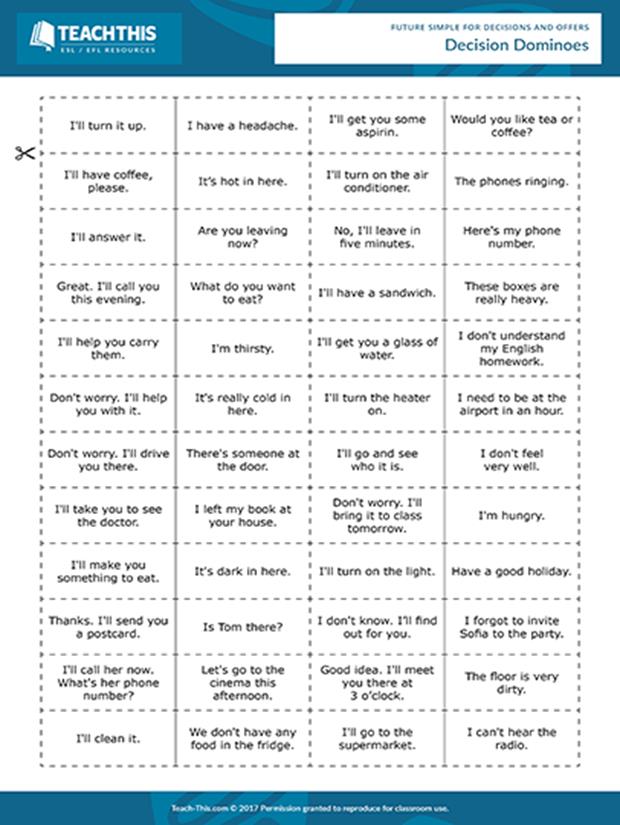

Situations with Will







Short term lesson plan
| Unit of a long term plan Unit 8Travel and tourism Lesson plan 85 | School: | ||||||||||
| Date: | Teacher’s name: | ||||||||||
| Class: 9 | Number present: | Number absent: | |||||||||
|
Lesson title |
An email about a visit. | ||||||||||
|
Learning objectives(s) that this lesson is contributing to | 9. C4 evaluate and respond constructively to feedback from others 9. C5 use feedback to set personal learning objectives 9. C7 develop and sustain a consistent argument when speaking or writing 9. L5 recognise the attitude or opinion of the speaker(s) in unsupported extended talk on a wide range of general and curricular topics, including talk on a limited range of unfamiliar topics 9. R7 recognise typical features at word, sentence and text level in a limited range of written genres 9. W1 plan, write, edit and proofread work at text level independently on a range of general and curricular topics 9. S7 use appropriate subject-specific vocabulary and syntax to talk about a limited range of general topics and curricular topics | ||||||||||
|
Lesson objectives | All learners will be able to: · *develop speaking skills through communication about the city; *write an email about a visit using the right grammar. Most learners will be able to: * select, compile, and synthesize information from the reading passage for an oral presentation. *apply, pronounce and spell most target vocabulary accurately in production tasks and integrate with some success in extended writing task Some learners will be able to: *respond to and discuss the reading passage using interpretive, evaluative and creative thinking skills. · *demonstrate the ability to find correct information without any mistakes; · *apply topic related vocabulary in speech with grammar accuracies; · *offer constructive peer-feedback using rubric. | ||||||||||
|
Value links | Cooperation, respect each other's opinion, functional literacy, Love to the native places. | ||||||||||
|
Crosscurricular links | Social Science, Psychology, Geography, Information Technology, History. | ||||||||||
|
Previous learning | Giving information about the place to visit. | ||||||||||
|
Useof ICT | Smart board for showing a presentation, getting additional information, playing the audio files. | ||||||||||
|
Intercultural awareness | Discuss experiences in different countries about the sights. | ||||||||||
|
Health and Safety | Breaks and physical activities used. Everyday classroom precautions will ensure that safety measures are provided to prevent the exposure of electrical power cords. | ||||||||||
| Planned timings |
Planned activities | Resources | |||||||||
| Beginning of the lesson 7 min. | The lesson greeting. The teacher sets the lesson objectives, letting students know what to anticipate from the lesson. Then to create a positive learning environment the teachers asks students to start the lesson giving each other compliments about appearance, job performance, talent, etc. and also practice accepting compliments. Watching the pictures, the learners are asked to predict the topic of the lesson.
Warm up. Free talk about your city or a town. Do you like your city? Why? What's your favourite place in the town? Why? The teacher asks Sts. in pairs make a list of favourite places in the town. What are you going to show to your guests from other cities?
| Slide (useful phrases). Pictures PPT Student Book p. 99. Writing Worksheet Pictures PPT Slide (useful phrases). | |||||||||
| Main Activities 15 min. 12 min |
Main part Describe Almaty and its sights. Describe Almaty and London. Group Work.
Pre-reading stage. Predicting and guessing. What is written in the email?
Predicting and guessing. Students move their eyes over the text " My Day" quickly (1 minute). Then they close the book. After that students call out words, phrases they remember from the text, note them. Students work in pairs (1 minute) discuss what the text is about or (create a text using some of the previous written words). Students express their ideas (1 minute). Ex. 1 -2. While-reading stage. Make a plan of their trip to Oxford. Post-reading stage. Next, students complete peer-evaluation forms. What linkers are used in the text? Ex. 1 - 3 p. 99. Look at the email and fill in a table. Ex. 4. p. 99 Write in pairs the plan to show Almaty to your friend. Use Writing Guide on p. 99. | Student Book p. 99 The song about Almaty. Pictures PPT Pictures PPT Student Book p. 99 A Table Teacher’s Book p. 121 | |||||||||
| Ending the lesson 6 min. |
Giving the home task. W. B. p. 67 Students express their attitude to the lesson and give self-assessment using the method: “ Six thinking hats ”: | ||||||||||
Tasks:
I. Complete this text, please. Open the brackets. Put the verbs into the necessary verb forms:
Dostyk Avenue is a fine street which 1 (to see) much history over the centuries. For generations Dostyk Avenue (to be) the heart of Almaty. It (to be) actually quite long and a lot of sights (to be) situated on it. People (visit) theatres, a circus, many shops. City library (to attend) by students and pupils to work there. Yearsagothisavenue (tohave) anothername.
II. Учащимся предлагается просмотреть отрывок из видеофильма
«Алматы» после просмотра учащиеся выполняют следующее задание:
1. The Central Museum, original in its architectural style was built in
a) 1986
b) 1994
c) 1990
2. Shota Valikhanov, a well-known Kazakhstan's architect... created:
a) the monument to Abai
b) the monument of Independence
c) the monument to Pushkin
3. The famous Medeo skating rink is only... km from Almaty
a) 10
b) 25
c) 15
4. When were the biggest earthquakes in Almaty?
a) 1887
b) 1952
c) 1910
5. Name the main streets and squares of Almaty.
III. Translation Exercise. Listen to the newspaper article about Almaty and write the translation in your copy-books.
«ГородАлматы – золотая колыбель казахстанской государственности», это гнездо, из которого вылетела наша независимость, и Казахстан стал известен всему мировому сообществу. Алматы всегда был особым городом. Это о нем поют, не город, а сама мечта». Супруга Эрнеста Хэмингуэя Мэри объездила, чуть ли не весь мир, посетила огромное количество городов, но самым красивым назвала Алматы. - «Не Москва, не Ленинград? » - переспрашивал ее корреспондент «Алма-Ата» - повторила она.
Short term lesson plan
| Unit of a long term plan Unit 8Travel and tourism Lesson plan 86 | School: | ||||||
| Date: | Teacher’s name: | ||||||
| Class: 9 | Number present: | Number absent: | |||||
|
Lesson title | My Country. Travel and tourism. p. 100 | ||||||
|
|
|






















